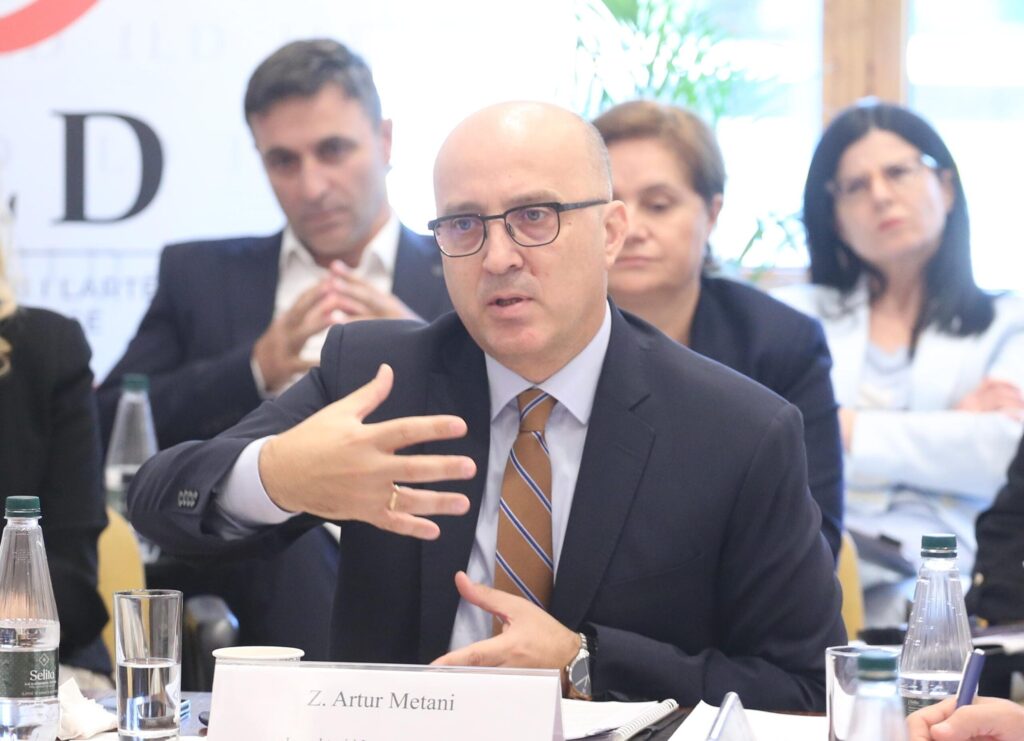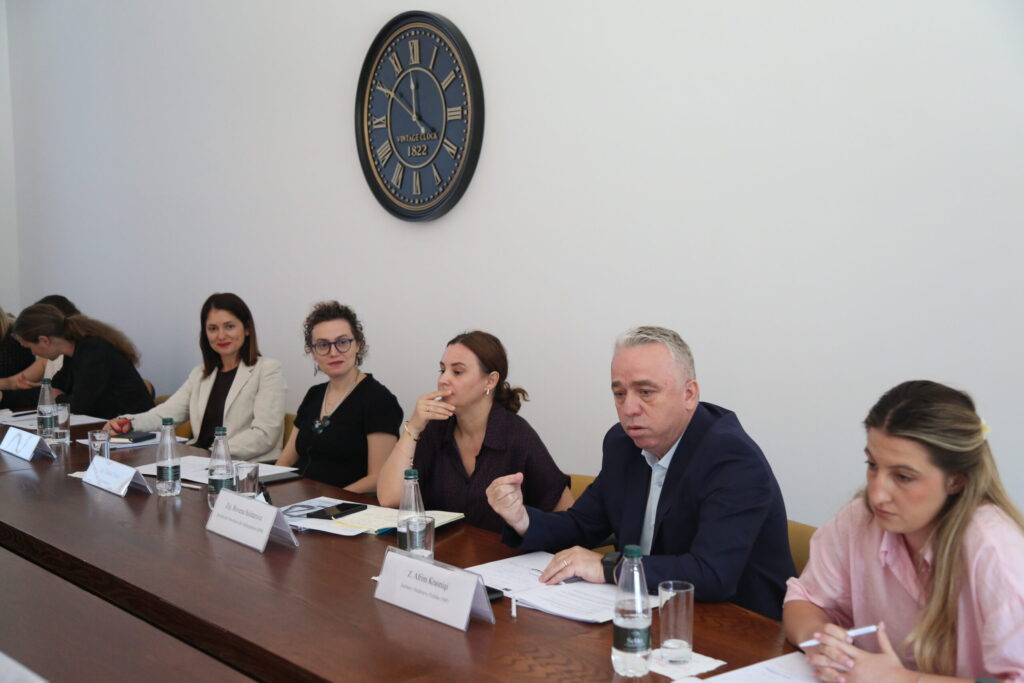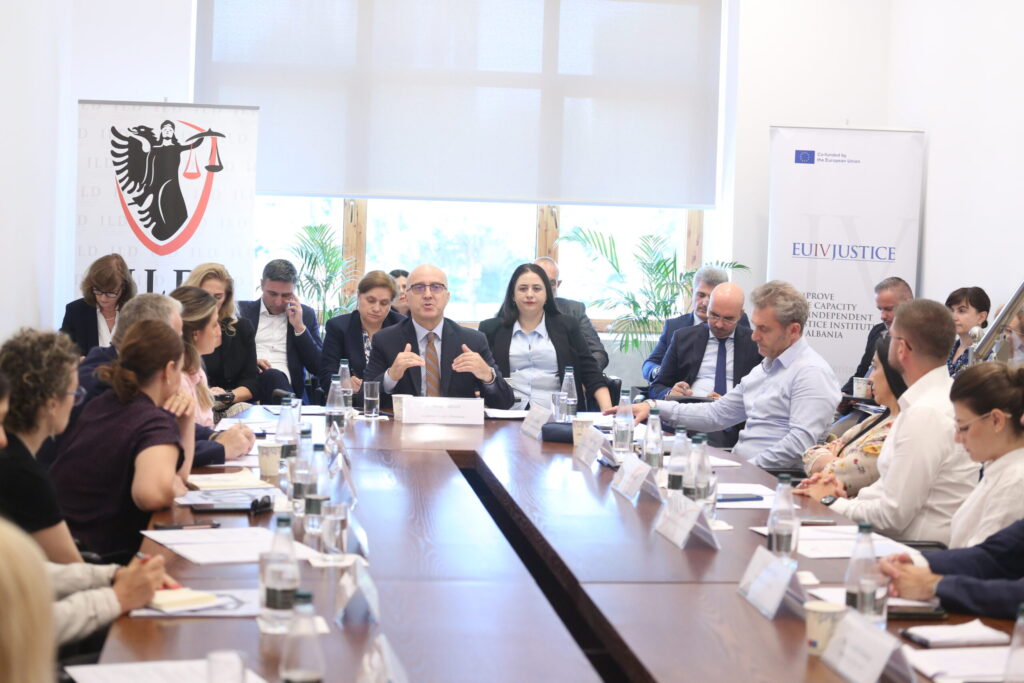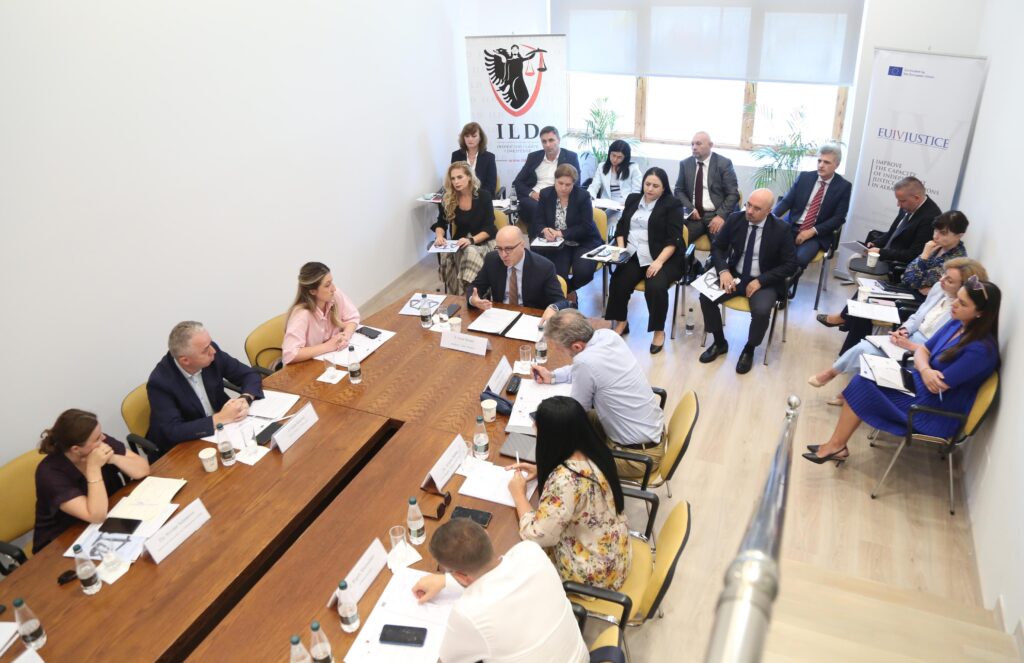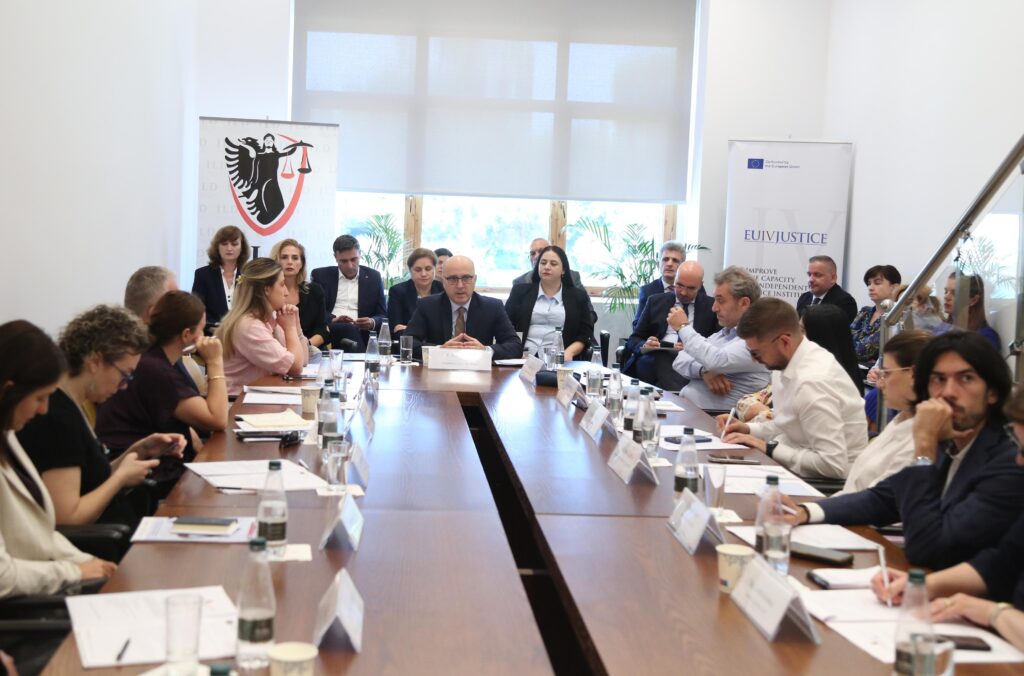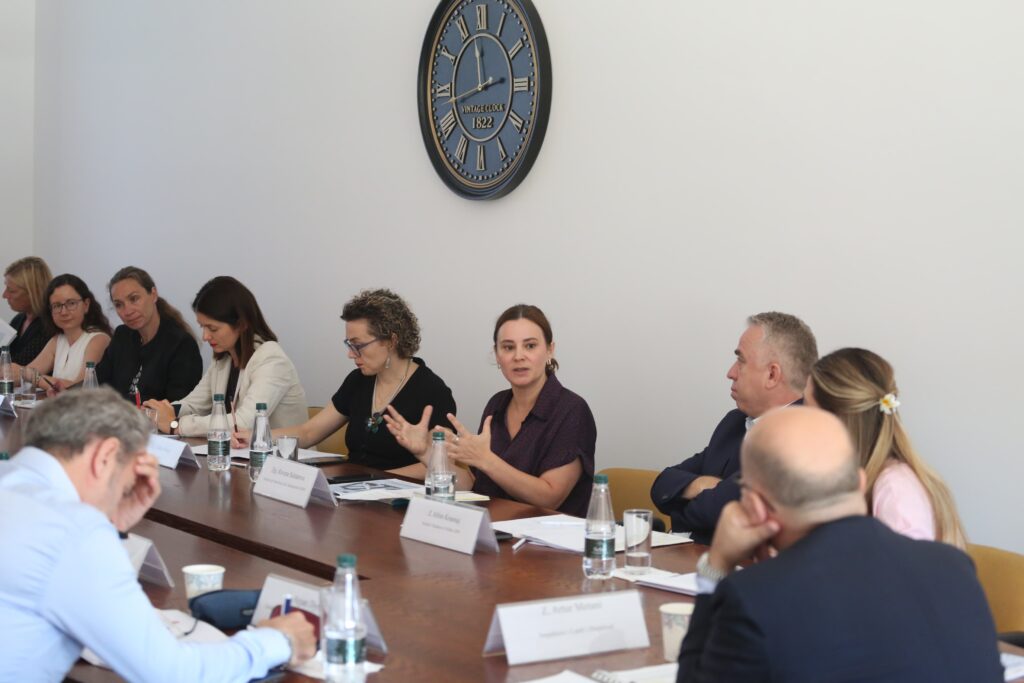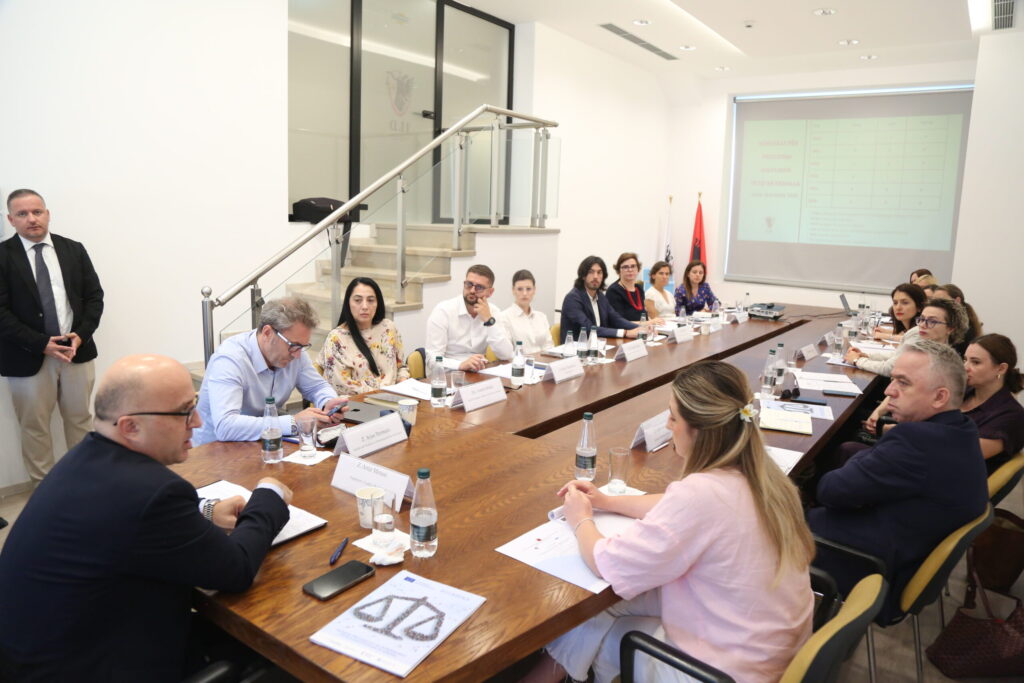- “Abdi Toptani” Street, Torre Drin Building, 10th floor, Tirana, Albania
- info@eu4justice.al
- Call Us : +355 (0) 4 562 0550
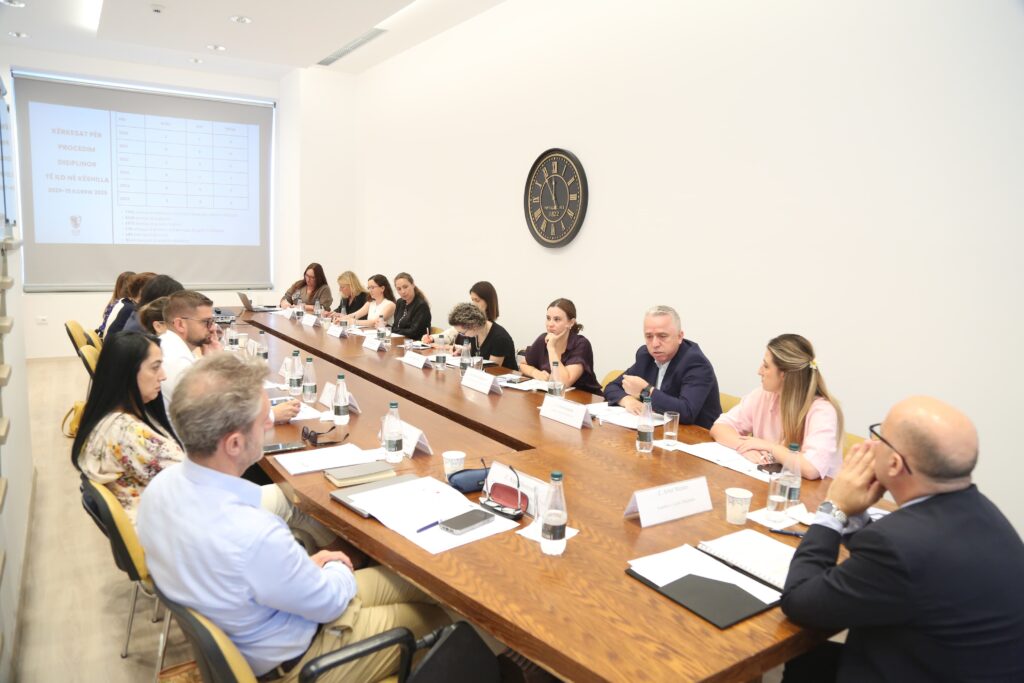
The High Inspector of Justice, Mr. Artur Metani, held a working meeting with Civil Society Organizations (CSOs), which focus on justice and human rights in their work, to discuss the strengths and weaknesses of the Office of the High Inspector of Justice and priorities for the future, based on the institution’s activity report for 2024 and the dynamic comparison of work in 5 years of operation.
The meeting was attended by CSOs with which HIJ has cooperation agreements and other organizations, specifically Mr. Afrim Krasniqi from the Institute of Political Studies (ISP), Ms. Aranita Brahaj from the Albanian Institute of Science/Open Data Albania, Mr. Arjan Dyrmishi from the Center for the Study of Democracy and Governance, Ms. Rovena Sulstarova from the Institute for Democracy and Mediation (IDM), Mr. Rigels Xhemollari from Civic Resistance, Ms. Emilia Llambro from the Center for European Development and Integration (CEDI) and Ms. Teisa Kurti from the Altri Center. Also international partners were invited with whom HIJ has been cooperating for years, from the Delegation of the European Union, OPDAT, the OSCE Presence, the Embassy of the Kingdom of the Netherlands and the EU4 Justice mission, which supported this activity.
For an open and exhaustive communication with CSOs and international partners, the High Inspector of Justice Metani was accompanied by the Unit of the Inspectors of the HIJ office. In his opening speech, thanking them for their presence, Mr. Metani stated that:
“I consider this type of communication with civil society organizations to be extremely important, as I consider you to be important external actors because not only through our meetings, but also through your activities and projects, you are well acquainted with the way the Office of the High Inspector of Justice functions. So, our expectation is for a qualified opinion and we can achieve this together, by receiving our explanations for every aspect of the work of the HIJ that interests you.”
Mr. Metani made a graphic presentation of the dynamics of the work of the HIJ during 2024, focusing on the main functions of the institution, related to the administration and handling of complaints, investigation and disciplinary proceedings, and inspections. The High Inspector of Justice further presented the progress of the HIJ activity over the years, with concrete data, since the start of its operation in 2020 and the goals for increasing the efficiency of work, in the function of transparency and strengthening public trust in the HIJ and the justice institutions.
Mr. Metani responded to the participants’ interest in aspects of the HIJ’s work over the years, but also in developments outside the institution on the role and public expectations. Evaluating as very valuable the contributions and suggestions that were conveyed at the meeting by Civil Society Organizations, the High Inspector of Justice also assessed as necessary the monitoring reports that are made for the HIJ, most recently by the Albanian Helsinki Committee.
“The Civil Society monitoring reports on the HIJ are an indication that this institution is monitorable, regardless of whether we agree or disagree with the findings presented, because ultimately this is how democracy works. It is important that the work of an institution is monitored, analyzed and evaluated, and this is a democratic mechanism to be nurtured and evaluated.”
At the end of the meeting, the participants shared the view that professional contacts serve to understand the dynamics of work, not only of the institution, but also of the needs and priorities to be defined and implemented.


